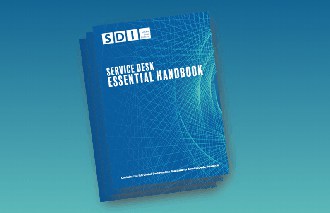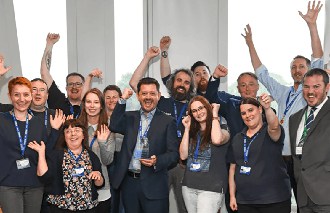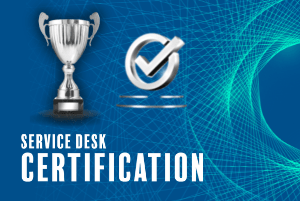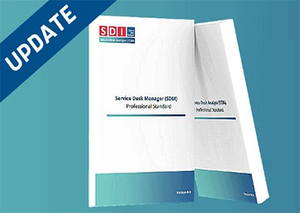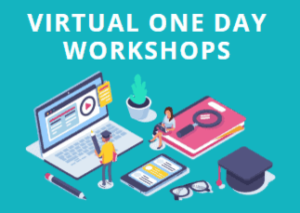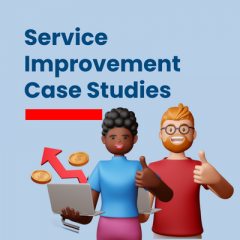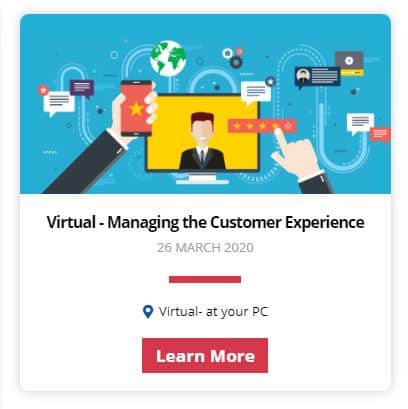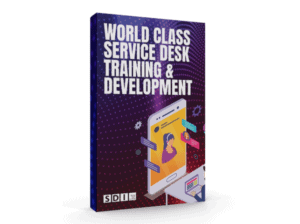
That technology changes rapidly is one of the vast understatements of our time. Organisations and individuals involved in IT service management must continually reinvent themselves to keep up with the “digital transformation” across a myriad of business IT landscapes.
Companies must stay on top of the rapid change in order to compete in the increasingly complex marketplace; individuals must take the initiative to remain current and competitive, thereby staying relevant and reliable contributors to their employers — which will ultimately boost their careers.
Future ITSM roles will, of course, include executing some of what they do now or, put in more “value-centric” terms, they will still need to deliver against operational and organisational needs to meet required outcomes using some of their existing skills and capabilities.
Precisely what additional types of skills and capabilities will ITSM professionals need to adopt?
A survey conducted by SysAid among 20 top ITSM industry influencers, experts and analysts identified 9 distinct key skills that they predict will play a vital role in the ITSM professional’s success in the future.
Some might be expected, some represent generic or known areas for improvement and some are very new. They are:
- An understanding of AI and analytics
- Knowledge management capabilities
- Business Relationship Management (BRM) capabilities
- An understanding of what business value is and how to create it
- Customer experience skills
- Communication and collaboration skills
- Problem-solving skills and capabilities
- A focus on innovation for better business outcomes
- A desire for continual learning
- Personal flexibility and agility, with the ability to deal with complexity
Here we take a look at each of these skills in a little more depth:
1. An understanding of AI and analytics
No longer confined to science fiction movies, AI today is enabling more advanced and efficient IT operations, from virtual assistants and agents to chatbots and automated operations. This means AI represents opportunities like automating non-value-adding IT activities and assisting with “reactive” tasks, thus leaving IT staff with more time for proactive, value-adding work.
AI also enables IT support teams to make better-informed decisions, based on the ability of the technology to handle and analyse larger data sets and intelligence-based reporting, alerting and data mining. What’s critical with this skill is understanding that successful AI usage and practices be built on solid knowledge management foundations.
2. Knowledge management capabilities
Many self-service technology initiatives have failed in recent years due to the neglect of knowledge creation and nurturing. The same may be true of any new technology initiatives if the appropriate knowledge groundwork isn’t created today. AI and knowledge management are two sides of the same coin.
Essentially, machines learn as human beings do through experience and through education, the latter in this case being “available knowledge.” Without effective knowledge management capabilities, organizations and individuals will struggle to succeed with AI and other cutting-edge initiatives.
3. Business Relationship Management (BRM) capabilities
Effective BRM bridges the gap between IT and other lines of business; helps to stimulate, surface and shape business demand for products and services; and ensures potential business value from those products and services is captured, optimized and communicated.
It is becoming impossible for IT to continue to work in a silo and BRM will be pivotal to IT’s success. Importantly, BRM is about so much more than better IT-to-business alignment. In fact, BRM should be used to help dispel the talk of such things – after all, the IT department is a key part of the business, not something separate.
4. An understanding of what business value is and how to create it
What IT departments literally call themselves can, either consciously or subconsciously, drive what they do and ultimately deliver to the organisation. In the case of “ITSM professional,” it’s a term that talks about what someone does, i.e. ITSM, rather than what they achieve at a business level.
We now need to move ITSM professionals on from “doing ITSM” to fulfilling a far more business-focused and effective purpose. What should this new role be called? It’s wise to find out from customers how they see the role helping them; from that a suitable name might appear. Whatever’s chosen, it should ideally reflect better business outcomes rather than just what’s being done “internally.”
5. Customer experience skills
In addition to technology-enabled business capabilities such as DevOps, another important success driver has gained traction in corporate IT: customer experience (CX). Whether it’s viewed (depending on perspective) as end-user experience, employee experience, service experience or something else, there’s no escaping the fact that what customers and employees think of the IT department, its services and customer service is increasingly important.
The expectations of both customers and employees are continuing to rise and those who have skills that put them in tune with creating superior customer experiences and improvements in availability, engagement and quality will come out ahead of those who don’t.
6. Communication and collaboration skills
The ITSM industry has, for many years, paid lip service to the softer skills required for effective ITSM. The commonly espoused mantra of “people, process and technology — in that order” has often been overlooked; the focus has remained on process and technology change/improvement. Things must change.
The need to get the “people priority” solidified is vital; it’s often the missing ingredient in the recipe for delivering the desired business outcomes.
Key to success in this realm are communication and collaboration skills; IT should no longer rely on superior individual performance and the oft-associated “hero mentality.” There is true power — and a superior result — in small teams working together toward a common goal. Those who can effectively work in this type of environment will excel.
7. Problem-solving skills and capabilities
Many ITSM professionals already have solid problem-solving skills in general. But problem-solving in the workplace can be tricky. People often feel held back or unable to make decisions, due to a variety of potential root causes: micro-management, bureaucratic processes, ill-defined roles and responsibilities or a “blame culture” that prevents risk-taking, however small.
Smart ITSM professionals will be trained in problem-solving methods and techniques and provided with tools that facilitate this. But superior professionals will be able to bend with, foster and facilitate cultural change — think empowerment — that allows staff to feel free to solve problems, either individually or collectively, as and when needed.
8. A focus on innovation for better business outcomes
Innovation is a management buzzword that never seems to go away. It’s also often misused or confused with similar words such as imagination, creativity or ideation. The important thing to understand about innovation and its need is that it must lead to something tangible — not just a new idea or concept.
ITSM professionals who can work with a daily eye toward innovation and contribute to the organisation by translating new ideas and concepts into things that create value for customers — like revenue for their organisation — will be truly ahead of the curve.
9. A desire for continual learning
In order to stay on top of industry developments, technological change, and the increasing expectations placed on, and by, the business, learning has to be part of the ITSM professionals DNA.
Learning new things, improving skill sets, and keeping abreast of new innovations and thinking will enable ITSM professionals to maintain a competitive edge, better respond to customer demand, and position themselves at the forefront of organisational change. In such a fast-changing business environment, this learning will be the key to ITSM professional success in the twenty twenties.
SDI’s Service Desk Manager course provides complete service desk management tool kit covering strategy, leadership, employee development, relationship building, service improvement, ITSM processes, performance measurement, finance and tools and technologies, as well as a a globally recognised qualification.
10. Personal flexibility and agility, with the ability to deal with complexity
The ability to take the best or most appropriate elements from a variety of approaches to create “the perfect blend” for an organisation will be a highly-valued skill. This might utilise a variety of ITSM frameworks, methodologies and standards (including the Global Best Practice Standard For Service Desk) as well as other approaches, from ITIL to DevOps, SIAM to customer-experience best practice or IT4IT to VeriSM.
Whatever the business case, the successful ITSM professional of 2020 will remain flexible and agile enough in this complex environment — using the best tools from past and present — to make a real positive difference for their organization, now and into the future.
This blog is taken from excerpts of an article by Sarah Lahav, CEO of SysAid Technologies hosted on https://www.ciodive.com
